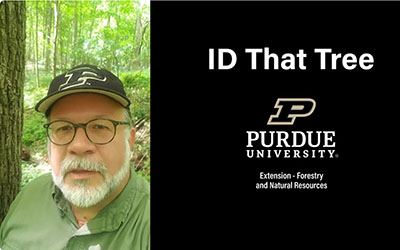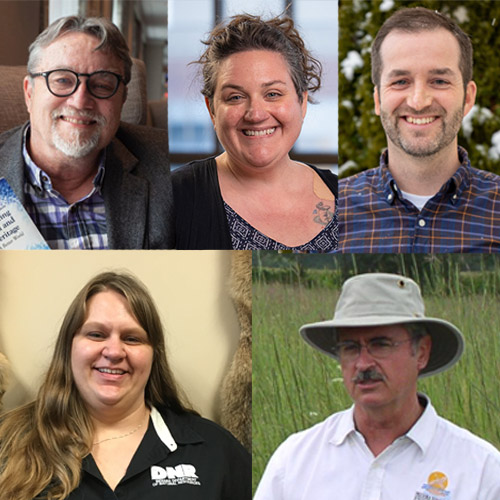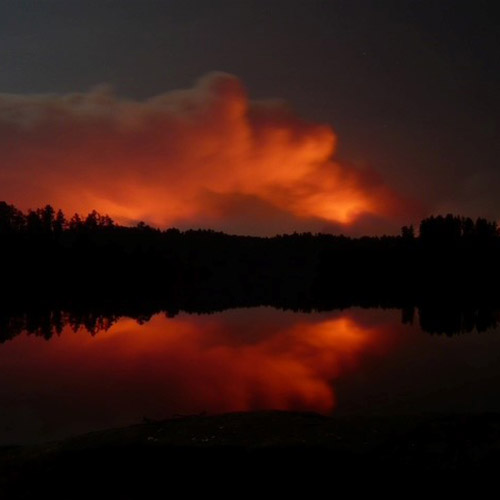Collingsworth, Flaherty and Saunders Earn Promotions
Purdue Forestry and Natural Resources congratulates three faculty members on their promotions, which were announced at the Board of Trustees meeting on April 14.
Dr. Paris Collingsworth was promoted to research associate professor, while Drs. Elizabeth Flaherty and Mike Saunders were promoted to full professor.
Collingsworth, who also works as a Great Lakes Ecosystem Specialist with Illinois-Indiana Sea Grant,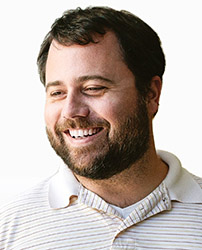 joined the Purdue faculty as an assistant research professor in 2014. His research focuses on ecosystem dynamics in the Laurentian Great Lakes. He uses ecological and statistical models as tools to develop a mechanistic understanding about how anthropogenic and natural stressors impact ecosystem structure and function.
joined the Purdue faculty as an assistant research professor in 2014. His research focuses on ecosystem dynamics in the Laurentian Great Lakes. He uses ecological and statistical models as tools to develop a mechanistic understanding about how anthropogenic and natural stressors impact ecosystem structure and function.
Collingsworth’s current projects include identifying environmental factors that influence fish survival in Lakes Michigan and Huron, identifying sources of variation in the primary productivity and food web dynamics in Lake Superior and exploring the spatial extent and ecological effects of hypoxia in Lake Erie.
Flaherty joined the Purdue FNR faculty in 2013 as an assistant professor of wildlife ecology and habitat management. She was promoted to associate professor in 2019. Flaherty’s research focuses on understanding and investigating wildlife associations with habitat, specifically responses to habitat fragmentation or habitat loss resulting from human activities such as forest management, agriculture or climate change. Her current projects focus on ecological studies of resource use using stable isotope analysis; habitat use and selection using camera surveys; and embedding skill and career development into undergraduate STEM education.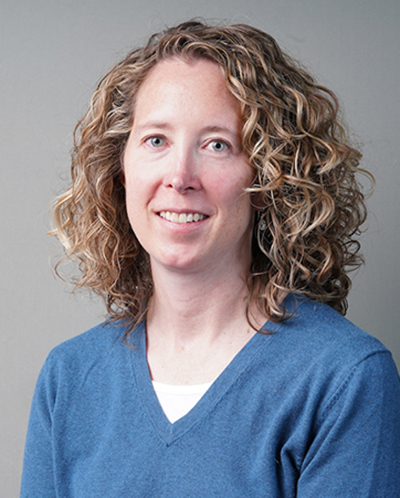
Throughout her time at Purdue, Flaherty has been continually honored for her teaching prowess, including the 2020 National Award for Excellence in College and University Teaching in the Food and Agricultural Sciences from the USDA. She also earned the 2020 Murphy Award and received the College of Agriculture’s Kohls Undergraduate Teacher Award (Much to learn from annual Celebration of Teaching Excellence). In December 2022, Flaherty was honored by the Purdue College of Agriculture with the John T. Taylor Excellence in Teaching Innovation Award, which recognizes tenure track or tenured faculty with at least three years of teaching undergraduates for their use of innovative teaching practices that contribute to improved learning and improved educational experiences for students.
Flaherty also received the TWS Student Chapter Advisor of the Year Award in 2020 and the organization’s Excellence in Wildlife Education Award in 2021. The Excellence in Wildlife Education Award celebrates sustained exemplary teaching and contribution to the improvement of wildlife education by individual faculty members. She was selected as Outstanding Club/Organization Advisor of the Year student choice award for the Purdue College of Agriculture in May 2022.
Saunders joined the FNR faculty in 2007 as an assistant professor of hardwood siliviculture. He was promoted to associate professor in 2013. He currently is a cooperating scientist within the Hardwood Tree Improvement and Regeneration Center and a lead scientist in the Center for Digital Forestry. Saunders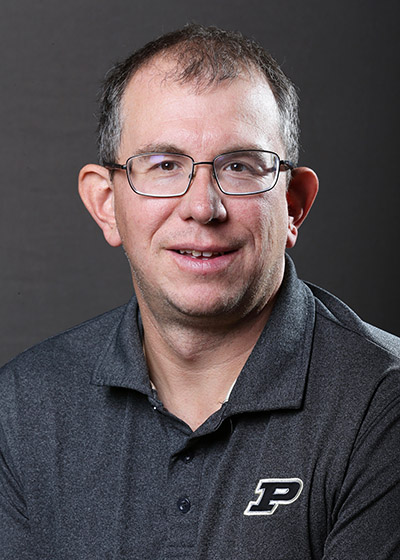 is the lead PI for the Hardwood Ecosystem Experiment, a 100-year large-scale experimental study of forest management and its impact, which was initiated in 2006.
is the lead PI for the Hardwood Ecosystem Experiment, a 100-year large-scale experimental study of forest management and its impact, which was initiated in 2006.
Saunders’ current research emphasis is the disturbance and fire ecology of eastern oak-dominated forest ecosystems and testing the use of digital and remote sensing platforms for forest inventory and analysis. He continues to investigate silvicultural systems that increase the range of variability within natural stands and/or emulate natural disturbance regimes within a given region; the improvement of growth and yields within intensively managed hardwood systems; and the influence of silviculture on wildlife habitat requirements. He is a long-term member of the Society of American Foresters, currently serving as a member of the Committee for Accreditation, which accredits most forestry programs in the United States and Canada. He also serves in leadership roles for the North American Forest Ecology Workshop series, the Updated Silvics of North America Project and the FAO North American Silviculture Working Group.



